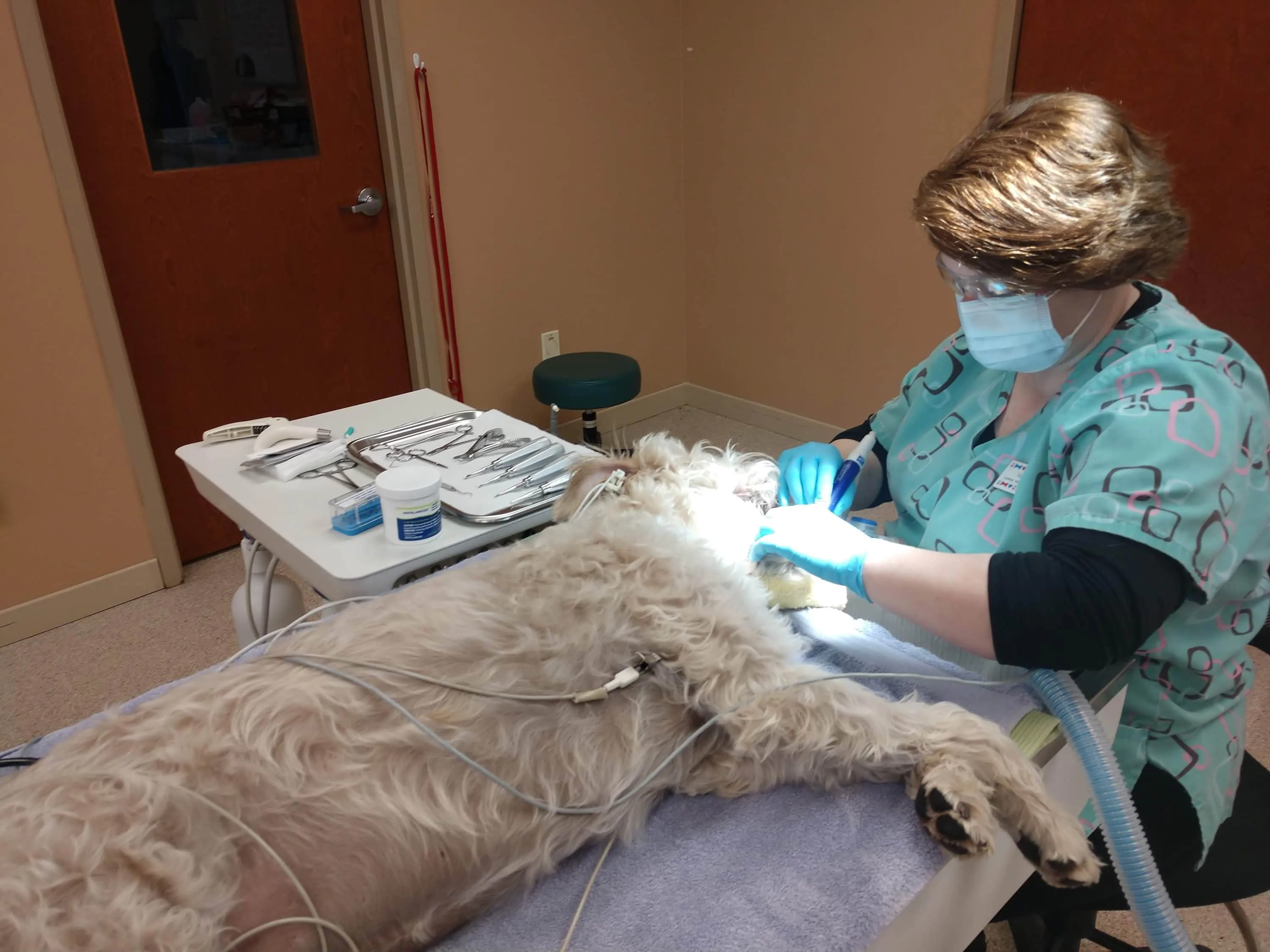
There is nothing better than having your Aussi shepherd smile in your face, until he pants at the same time causing you to turn your head and gasp for air yourself!
Or maybe you adore your cat hopping up near your pillow to greet you a good morning, until her breath causes you to gag, as if you had the hairball.
This is one of the first signs that it might be time for your pet to have a dental procedure. Although teaching your pet to become accustomed to having his/her teeth brushed every day is a recommended practice, we understand that doesn’t often happen. So, about the time your pet reaches five years old, or sometimes sooner, we frequently recommend a dental cleaning procedure.
Other signs that there might be a problem with your pet’s teeth would be swelling on the face (especially under the eyes), finding blood on a toy, a tooth pointing at a weird angle, discolored teeth, or changes in how your pet normally chews toys or food. Treating these issues sooner means less pain in your pet’s mouth, and less pain in your wallet. Treating these issues later… well, you get the idea.
Since we have yet to see a patient sit in a chair and hold their mouth open for us to do our work, a dental procedure does require anesthesia. As such, we take extra precautions to make the procedure as safe and pain free as possible. This includes checking bloodwork before the procedure. Pain prevention medication is started before the procedure begins and continues throughout. Sometimes nerve blocks are performed if Dr. Ted determines a tooth needs to be removed. If this is the case, pain prevention along with antibiotics may be sent home. Your pet will stay warm during and after the procedure while resting on a warm water circulating blanket. Your pet’s heart rate, ECG, oxygen level and blood pressure are monitored as well.
We may joke about our human response to bad breath, but dental disease is no laughing matter. Tooth and gum disease caused by bad bacteria are a constant stress to your pet’s immune system and other organs every time he/she swallows.
Preventing and treating tooth disease is one of the best ways of making sure your pet enjoys a happy, healthy life with your family.

